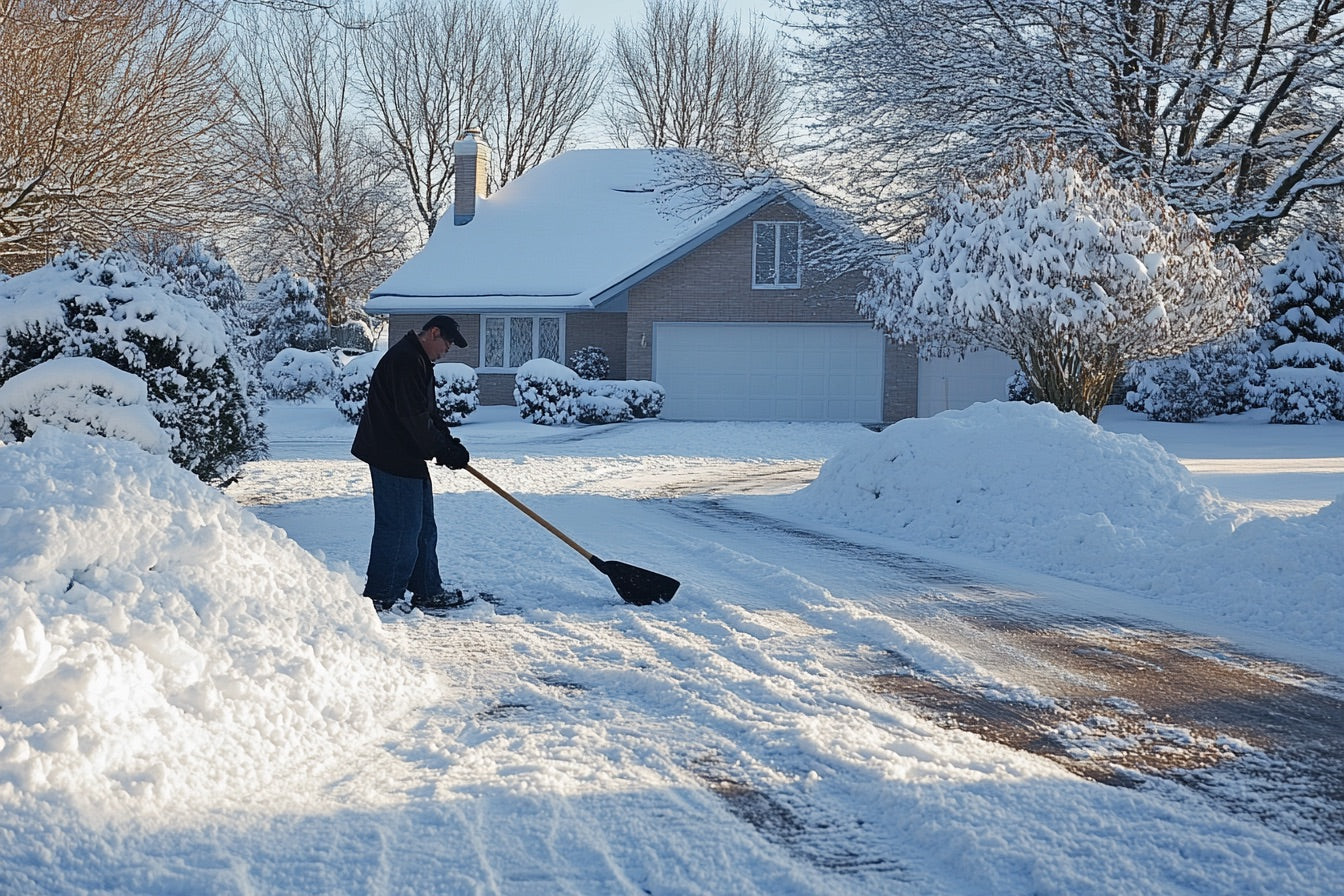Winter in Michigan brings heavy snowfall, and with it comes the responsibility of clearing sidewalks. Many cities and towns have specific regulations requiring property owners to remove snow from walkways to ensure the safety of pedestrians. But what happens if you neglect to shovel your sidewalk? Could you actually be arrested for failing to comply with local snow removal laws?
Understanding Michigan’s sidewalk clearance laws and municipal regulations is essential for staying in compliance and avoiding potential penalties. In this post, we’ll explore the laws surrounding snow removal in Michigan, the penalties for non-compliance, and whether you could face criminal charges.
Michigan’s Snow Removal Laws: What You Need to Know
Unlike some states that have uniform snow removal regulations, Michigan does not have a statewide law requiring residents to clear sidewalks. Instead, these laws are enacted at the municipal level, meaning different cities may have varying requirements and penalties.
Generally, local ordinances require property owners—both residential and commercial—to remove snow and ice from sidewalks adjacent to their property within a certain timeframe after snowfall. Cities enforce these regulations to prevent slip-and-fall accidents and ensure that pedestrians, including those with mobility impairments, can safely navigate public sidewalks.
What Happens if You Don’t Shovel Your Sidewalk?
The consequences of failing to clear your sidewalk depend on the specific regulations in your city or township. While the penalties vary, they generally fall into the following categories:
Fines and Citations
Most Michigan municipalities impose fines for failing to clear sidewalks. The amount varies by city but typically starts at around $50 for a first offense, with higher fines for repeat violations.
City-Cleared Sidewalks at Owner’s Expense
In some cases, if a homeowner fails to remove snow within the allotted time, the city may send workers to do it and bill the homeowner. These fees can be significantly more than the cost of hiring a private snow removal service.
Legal Liability for Injuries
If someone slips and falls on an uncleared sidewalk in front of your property, you could face civil liability. This means the injured party could sue you for medical expenses, lost wages, and other damages.
City-Specific Snow Removal Laws in Michigan
Since snow removal ordinances are determined at the city level, let’s take a look at the rules in a few Michigan municipalities:
Detroit
Detroit requires property owners to clear snow and ice within 24 hours of snowfall. Failure to comply may result in fines and potential city intervention to clear the sidewalk at the owner's expense.
Ann Arbor
Ann Arbor mandates that homeowners remove snow within 24 hours of snowfall accumulation over one inch. If they fail to do so, they may incur fines starting at $60 for residential properties and even higher for businesses.
Grand Rapids
Grand Rapids enforces a stricter 12-hour rule for snow removal. Property owners who fail to comply may receive an official notice, and if they do not clear the sidewalk within 48 hours, the city will do it for them and bill the property owner.
Lansing
Lansing, similar to other cities, gives property owners 24 hours to remove snow and ice. Enforcement is typically done based on complaints from residents, after which warnings and fines are issued.
Can You Be Arrested for Not Shoveling Snow?
Although you can face fines and potential legal liability for failing to clear snow, getting arrested for this violation is extremely unlikely.
When Could Criminal Charges Apply?
In rare circumstances, failure to remove snow could lead to more serious consequences. If your uncleared sidewalk causes an injury and you were grossly negligent, a local prosecutor could theoretically pursue criminal charges. However, such cases are rare and usually occur in extreme situations.
Ignoring Multiple Citations
If you repeatedly ignore citations or fines issued for snow removal violations, a city could take legal action against you. While a warrant for arrest would be unusual, failing to comply with court orders related to unpaid citations could result in legal trouble.
How to Avoid Legal Trouble: Snow Removal Tips
Staying in compliance with municipal snow removal laws doesn’t have to be difficult. Here are some easy strategies to ensure you don’t run into legal issues this winter:
- Act Quickly: As soon as a snowfall ends, make shoveling a priority. The sooner you clear your sidewalk, the less compacted and difficult the snow will be to remove.
- Use Ice Melt or Sand: Even after shoveling, ice can form and create hazards. Sprinkling rock salt or sand can help prevent slippery conditions.
- Hire a Snow Removal Service: If you're frequently away or unable to shovel due to physical limitations, consider hiring a snow removal company.
- Check Your Local Ordinances: Since rules vary by municipality, checking your city's website for specific snow removal regulations is a good idea.
Need Legal Assistance? Contact a Defense Attorney
While failing to shovel snow is unlikely to result in an arrest, other municipal violations can sometimes lead to complicated legal issues. If you've received repeated citations, are facing fines, or have any legal concerns related to municipal codes, a criminal attorney can provide guidance.
For professional legal assistance in Michigan, contact Boria Law at (734) 453-7806. Our team is experienced in handling municipal violations and ensuring your rights are protected.
Conclusion
In Michigan, failing to shovel your sidewalk generally results in fines rather than criminal charges. However, ignoring multiple citations or causing an injury through negligence could lead to more significant legal consequences.
To stay in compliance, make sure to familiarize yourself with your city's specific snow removal laws and take prompt action following snowfall. Doing so will help you avoid penalties, reduce legal risks, and keep your community safe during the winter months.


Share:
Wildlife Encounters in Michigan: Understanding the Laws Against Harassing Animals in State Parks
Michigan Car Accidents Surge After Daylight Saving Time: Understanding Liability and Your Rights